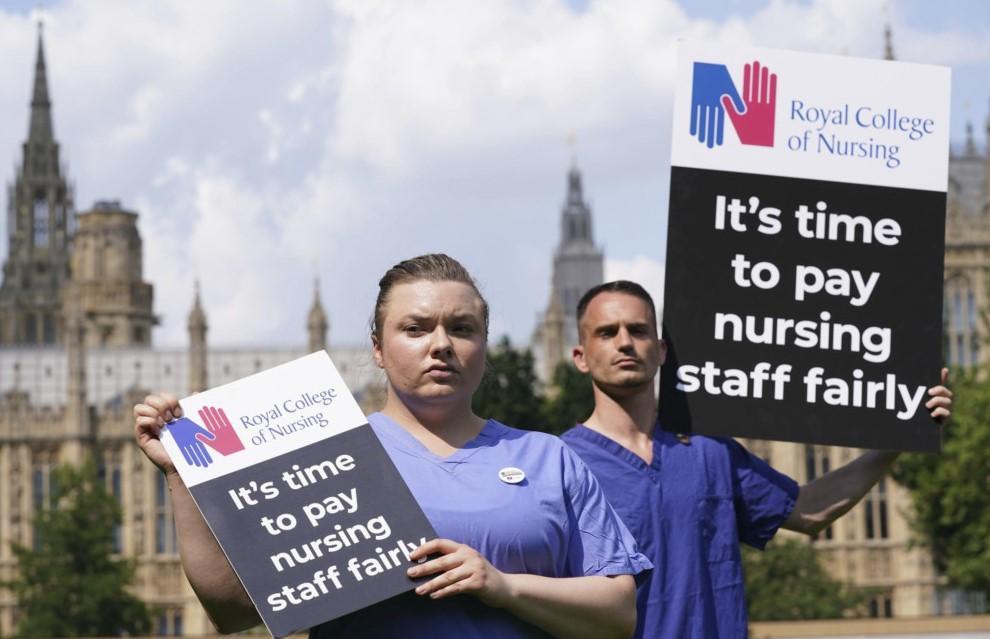
Brexit has compounded a shortage of doctors in Britain, with an estimated shortfall of 4,000 in major speciality areas from EU countries, a study has said.
It comes as the crisis-hit NHS state-funded health service struggles after years of underfinancing, with record waiting lists for some hospital care due to the Covid pandemic but also a lack of doctors and nurses.
The Nuffield Trust, an independent health think tank, focused on four fields of medicine - anaesthesia, pediatrics, cardio-thoracic surgery and psychiatry - where European doctors had been particularly relied upon before the UK left the European Union.
It found that in the four areas - where recruitment was already challenging - “the increase in EU and EFTA (European Free Trade Association) staff slowed down, falling below the projected increase”.
If the trend seen before Brexit had continued, there should have been more than 41,000 doctors from the EU or EFTA (Norway, Switzerland, Iceland and Liechtenstein) registered in 2021, or at least 4,000 more than the figures showed.
“The campaign and result of the EU referendum is the obvious reason for a change in trend around 2015 and 2016,” the study, commissioned by The Guardian newspaper, said on Nov. 27.
It highlighted initial uncertainty over new rules for the movement of people, followed by tighter visa rules and “deteriorating work conditions” in the health system.
“The findings suggest that stagnation in the number of EU doctors in these specialities has exacerbated existing shortages in areas where the NHS has not been able to find enough qualified staff elsewhere,” it added.
The Royal College of Nursing last week announced that its members would next month hold their first strike action in the union’s 106-year history in England and Wales, citing pay, conditions and chronic staff shortages.
With record waiting times, staff shortages, financial black holes and now a nurses strike over pay, the UK’s state-run National Health Service is facing an unprecedented crisis.
The walk-out by nurses next month heaps fresh misery on the much-loved but creaking institution, just as winter illnesses bite and as the country faces a prolonged recession.
Matthew Taylor, head of the NHS Confederation, which represents the service in England and Wales, said demand for frontline care is “sky-rocketing .
“Waiting time standards are deteriorating despite the sterling efforts of NHS staff -- and the winter months look to be very bleak and the busiest on record,” he said recently.
A record 7.1 million people are waiting for treatment, with long delays for tests as well as routine and emergency care.